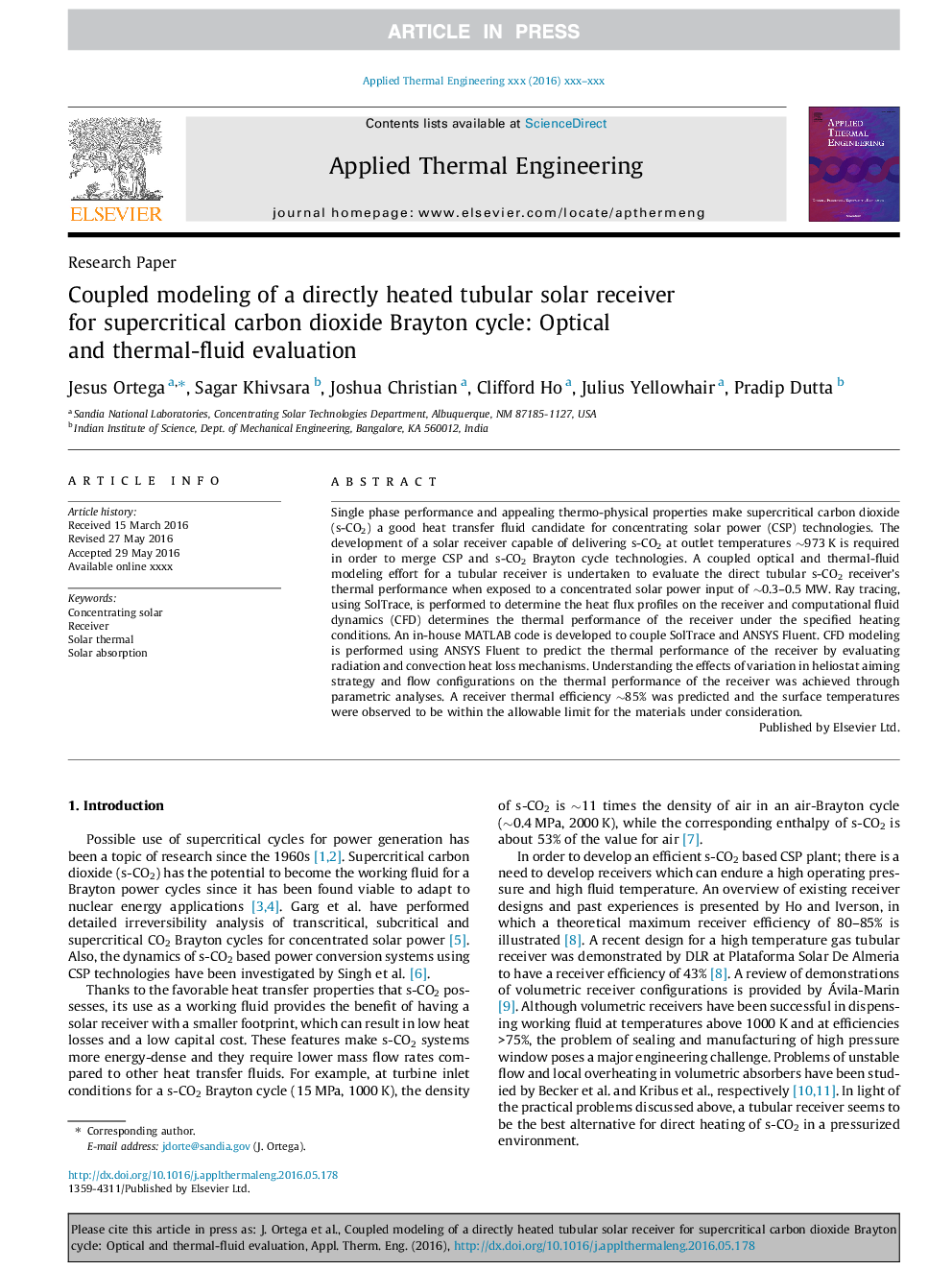| کد مقاله | کد نشریه | سال انتشار | مقاله انگلیسی | نسخه تمام متن |
|---|---|---|---|---|
| 4992215 | 1368131 | 2016 | 9 صفحه PDF | دانلود رایگان |
عنوان انگلیسی مقاله ISI
Coupled modeling of a directly heated tubular solar receiver for supercritical carbon dioxide Brayton cycle: Optical and thermal-fluid evaluation
دانلود مقاله + سفارش ترجمه
دانلود مقاله ISI انگلیسی
رایگان برای ایرانیان
کلمات کلیدی
موضوعات مرتبط
مهندسی و علوم پایه
مهندسی شیمی
جریان سیال و فرایندهای انتقال
پیش نمایش صفحه اول مقاله

چکیده انگلیسی
Single phase performance and appealing thermo-physical properties make supercritical carbon dioxide (s-CO2) a good heat transfer fluid candidate for concentrating solar power (CSP) technologies. The development of a solar receiver capable of delivering s-CO2 at outlet temperatures â¼973Â K is required in order to merge CSP and s-CO2 Brayton cycle technologies. A coupled optical and thermal-fluid modeling effort for a tubular receiver is undertaken to evaluate the direct tubular s-CO2 receiver's thermal performance when exposed to a concentrated solar power input of â¼0.3-0.5Â MW. Ray tracing, using SolTrace, is performed to determine the heat flux profiles on the receiver and computational fluid dynamics (CFD) determines the thermal performance of the receiver under the specified heating conditions. An in-house MATLAB code is developed to couple SolTrace and ANSYS Fluent. CFD modeling is performed using ANSYS Fluent to predict the thermal performance of the receiver by evaluating radiation and convection heat loss mechanisms. Understanding the effects of variation in heliostat aiming strategy and flow configurations on the thermal performance of the receiver was achieved through parametric analyses. A receiver thermal efficiency â¼85% was predicted and the surface temperatures were observed to be within the allowable limit for the materials under consideration.
ناشر
Database: Elsevier - ScienceDirect (ساینس دایرکت)
Journal: Applied Thermal Engineering - Volume 109, Part B, 25 October 2016, Pages 970-978
Journal: Applied Thermal Engineering - Volume 109, Part B, 25 October 2016, Pages 970-978
نویسندگان
Jesus Ortega, Sagar Khivsara, Joshua Christian, Clifford Ho, Julius Yellowhair, Pradip Dutta,